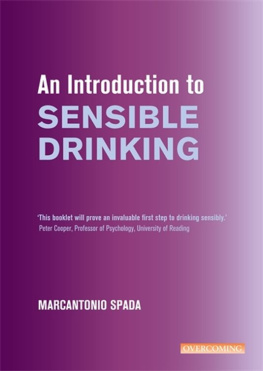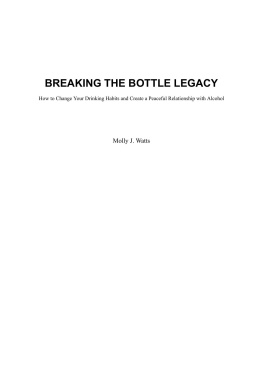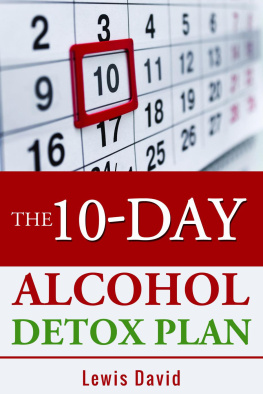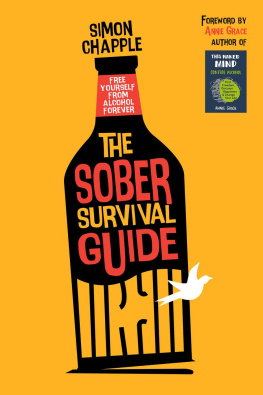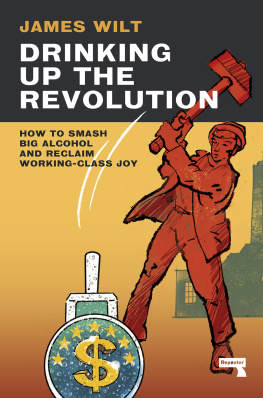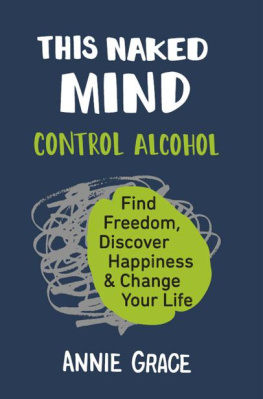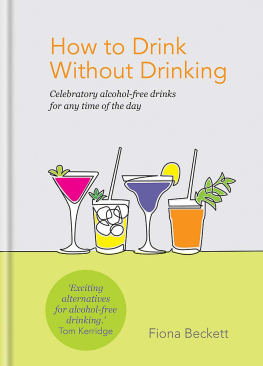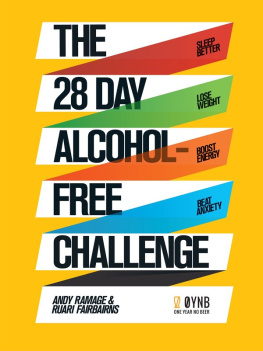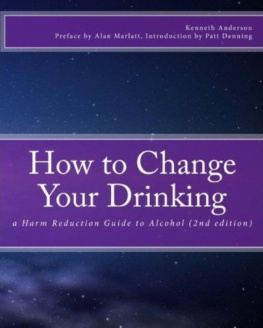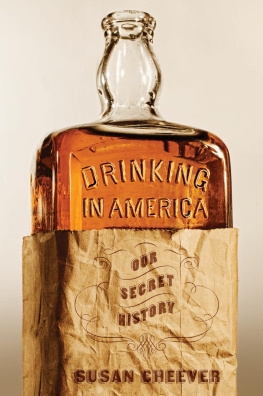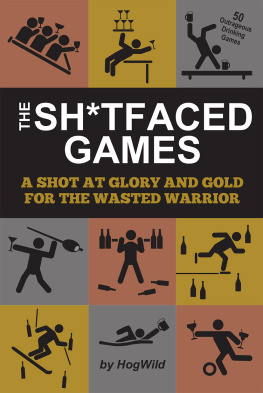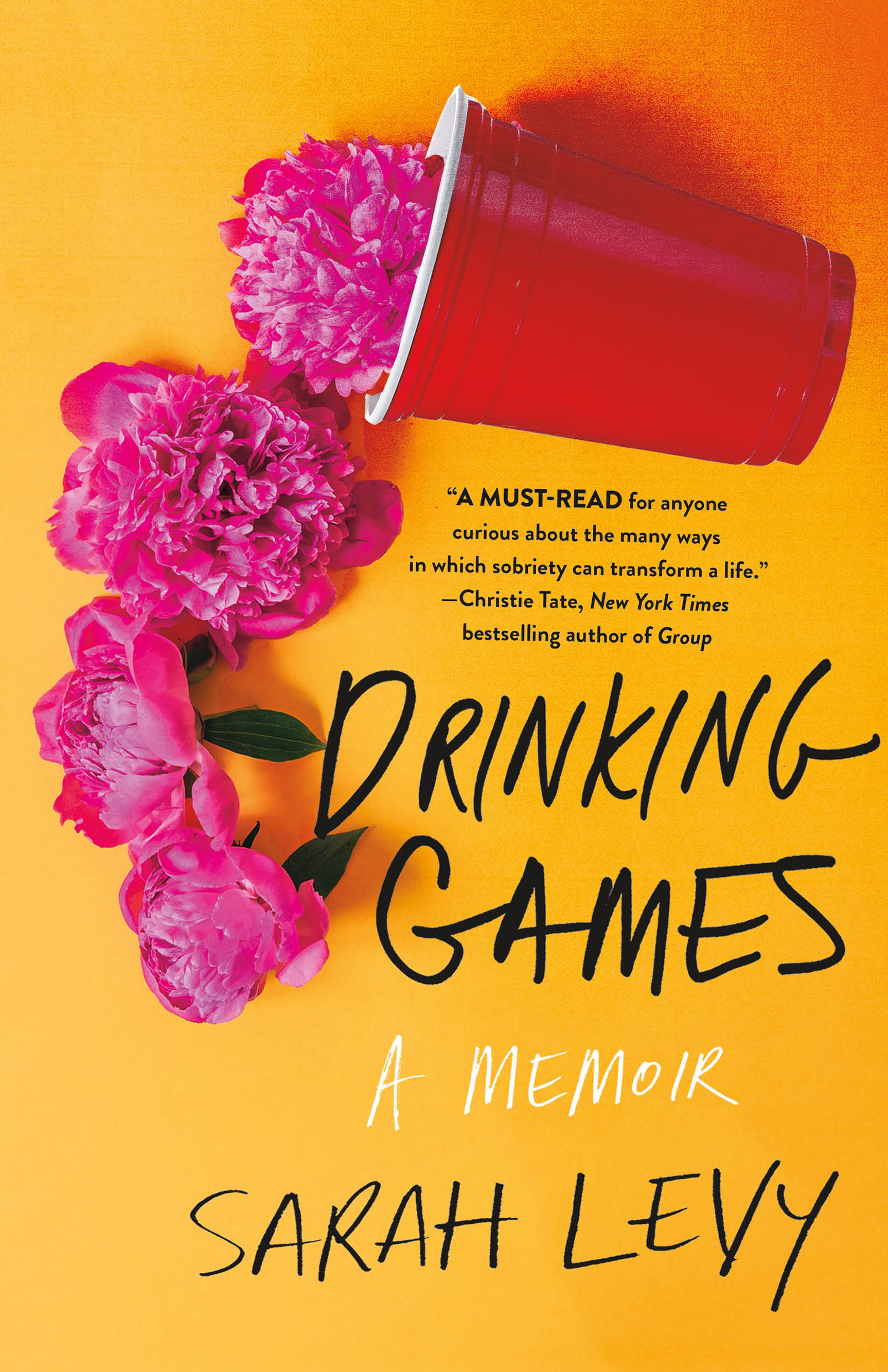Contents
Guide
Pagebreaks of the print version

The author and publisher have provided this e-book to you for your personal use only. You may not make this e-book publicly available in any way. Copyright infringement is against the law. If you believe the copy of this e-book you are reading infringes on the authors copyright, please notify the publisher at: us.macmillanusa.com/piracy.
To my familyfor loving every version of me
I have already lost touch with a couple of people I used to be.
Joan Didion
If you are the type of person who can party and wake up the next morning feeling normal, I salute you. I spent my twenties trying to keep up with you, be friends with you, and drink like you. I dont judge you for getting drunk and I have no feelings about the morality of drinking. In all honesty, I love watching your Instagram stories.
But there is another kind of drinker: The one who cant seem to stop when they start, who has a personality change when the alcohol hits, who can go from laughter to tears in a single sip, who thinks about their next drink order as soon as the first one arrives. Maybe they think about taking a break or cutting back, but they worry their entire life will fall apart. How will they ever find fun, love, connection, or purpose without alcohol?
I wrote this book for every reader to find something of themselves in it. Whether you are holding on to toxic friendships, stuck in romantic relationships that arent serving you, overexercising, obsessed with an endless pursuit of wellness, hiding behind your job or your phone, or have a secret bad habit you just cant breakthis book is for you. But this book is especially intended for the drinker who wonders about life on the other side. I was one of you. I felt so alone every time I woke up hungover, trapped in a cycle I couldnt seem to break. I was desperate for stories about people who were livingand I mean really livingwithout alcohol. I wanted to know that, if I stopped, I would be okay. These were the stories I needed to hear, which is why I am telling you mine now.
The following essays depict events that happened to me, reconstructed with the help of journal entries, photos, conversations with friends and family, and my memories. Some names and identifying details of those I met along the way have been changed. Everything you are about to read is true.
One more thing: this book explores sensitive topics like suicide, blackout drinking, and eating disorders. I am not an expert, trained therapist, or licensed professional; I am just one person telling her story. If you or someone you know is struggling with substance abuse or mental health, dont be afraid to seek out help. Its out there, and it saved my life.
At twenty-eight, I looked like I had it all together. I had an exciting job at a new venture-capital-backed startup, a great apartment in a trendy Brooklyn neighborhood, a big group of friends, and an invitation to a different party every weekend. On paper, my life was on track. But my insides told a different story.
When I laid in bed at night, I felt empty. I thought that if I just pushed myself a little bit harder, I would snap out of it. There was no logical reason for the loneliness that had taken up residence in my body. I had a privileged upbringing, with access to education, food, shelter, and a loving family. Growing up, I had done everything by the book: I studied hard in high school, graduated from Brown University, and found the right friends. My social circle consisted of high-achieving lawyers, consultants, doctors, and creatives excelling in their respective fields with the kind of trained indifference we had learned as teenagers. Yes, we were at the top of our classes and industries. But we wouldnt be caught dead showing how much we cared, how exhausted we were, how hard we tried. We were taught to make it look easy; to succeed without bragging. To offset our ambition (and the fear of failure that rippled through every decision we made), we partied.
Put simply, my generation is the work hard, play hard cohort. Millennials are the most educated generation. (According to the PEW Research Center, 63 percent of Millennials value a college education and plan to get one if they havent yet.) We are also the first generation to have grown up with social media. But while our ambition is well-documented, my peers and I were also taught to be seductively coy. This kind of cool was dubbed effortless perfection by undergraduates at Duke University in 2003. Students described a social environment on campus characterized by effortless perfection or the expectation that one would be smart, accomplished, fit, beautiful, and popular, and that all this would happen without visible effort.
My senior year of high school, several of my classmates swore that they hadnt applied Early Decision to any colleges. I found out they were lying when they got into prestigious universities that December and posted about their acceptances on Facebook. In college, I encountered the same types of nonchalant overachievers: a classmate swore that she had botched her MCATs, only to get a near-perfect score, and later, acceptance to a top medical school.
I wanted to achieve the same degree of effortless perfection when it came to my schoolwork. I knew caring was uncool, but there were a couple of problems. For starters, I have always cared too much about what other people think. I also try too hard. I dont know how to pretend that hard things are easy. Every time I switched majors in college (Creative Writing to English to Education to Sociology with a brief detour to Public Policy and back around to Creative Writing again), I felt like I had a civic duty to inform every person I encountered. No oneno onecared, but it was like a compulsive tick. I was curious and passionate about learning, but I lost interest quickly. I needed praise, or at the very least validation that I was on the right track, to keep me hooked. I knew how to study hard, but I wasnt sure how to think for myself.
Partying was the great unifier. Alcohol dulled my incessant desire to be liked; I felt more self-assured after a few drinks. But because I still possessed the same need to keep up and achieve, I was also always down for whatever. Another drink? Definitely. Afterparty? Im not tired. Scaling the side of my colleges science building in the middle of the night and drinking on the roof? If you guys are doing it, Im doing it too. It never occurred to me that being down for anything wasnt a particularly interesting or unique personality trait.
If you had asked me if my drinking was problematic, I would have shrugged it off. I loved partying; I saw it as a declaration of independence and a feminist act. I kept up with the boys through college and beyond, from the classroom to the frat house to the bar. When I moved to New York after graduation, I matched every drink my male friends and coworkers took, relishing the way their eyes widened as I went shot for shot with them in dingy downtown dive bars. I documented it all on social media, watching the likes pour in on my party pics and taking them as a signal that this was normal, right?
My drinking got worse as I got older, and so did my denial. I woke up bruised and bloodied after falling in heels on a concrete sidewalk, but I shrugged it off. It could have happened to anyone! I couldnt have a real problem with alcohol, I reasoned, because I was smart, high-achieving, and young. I was also healthy.


